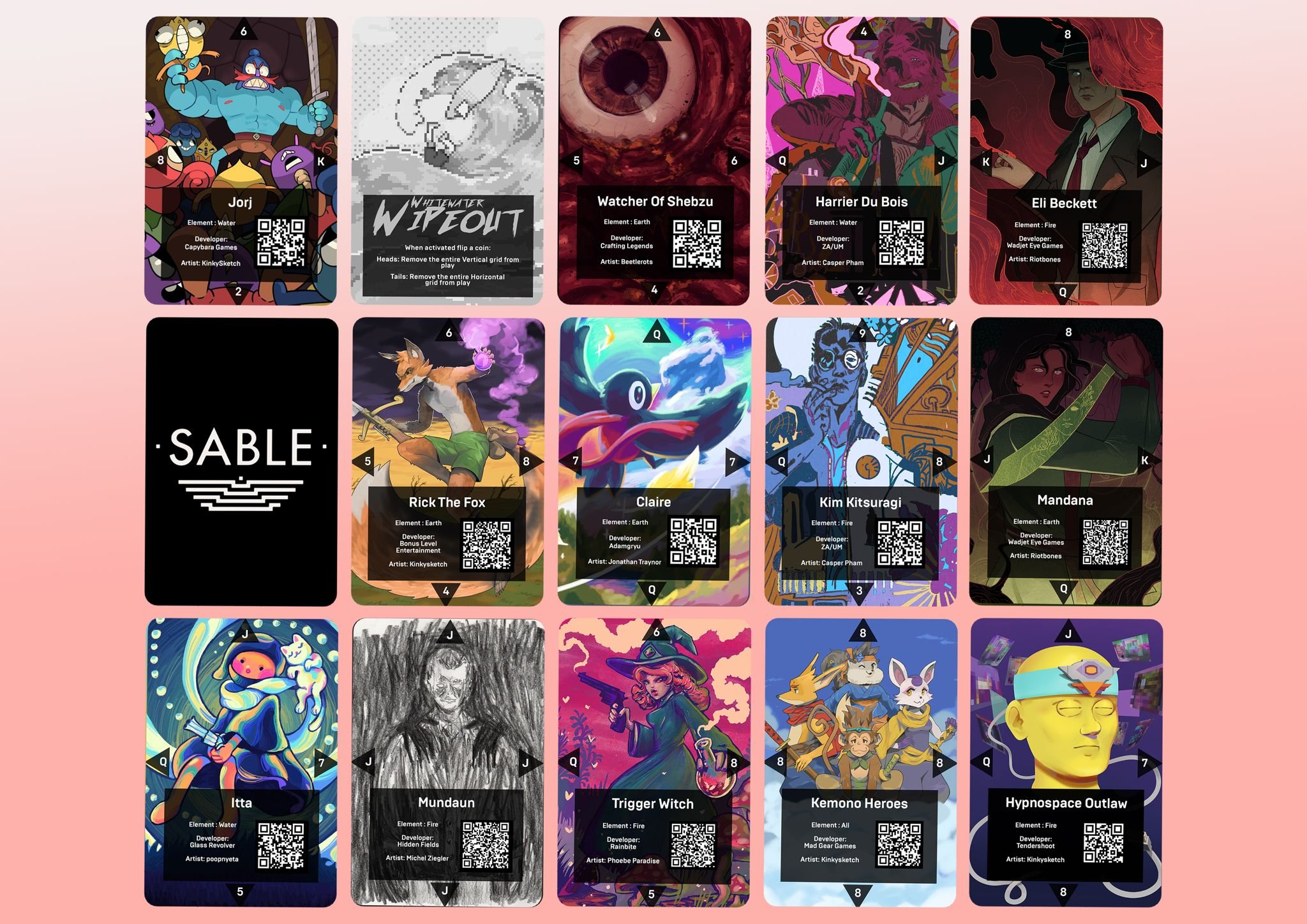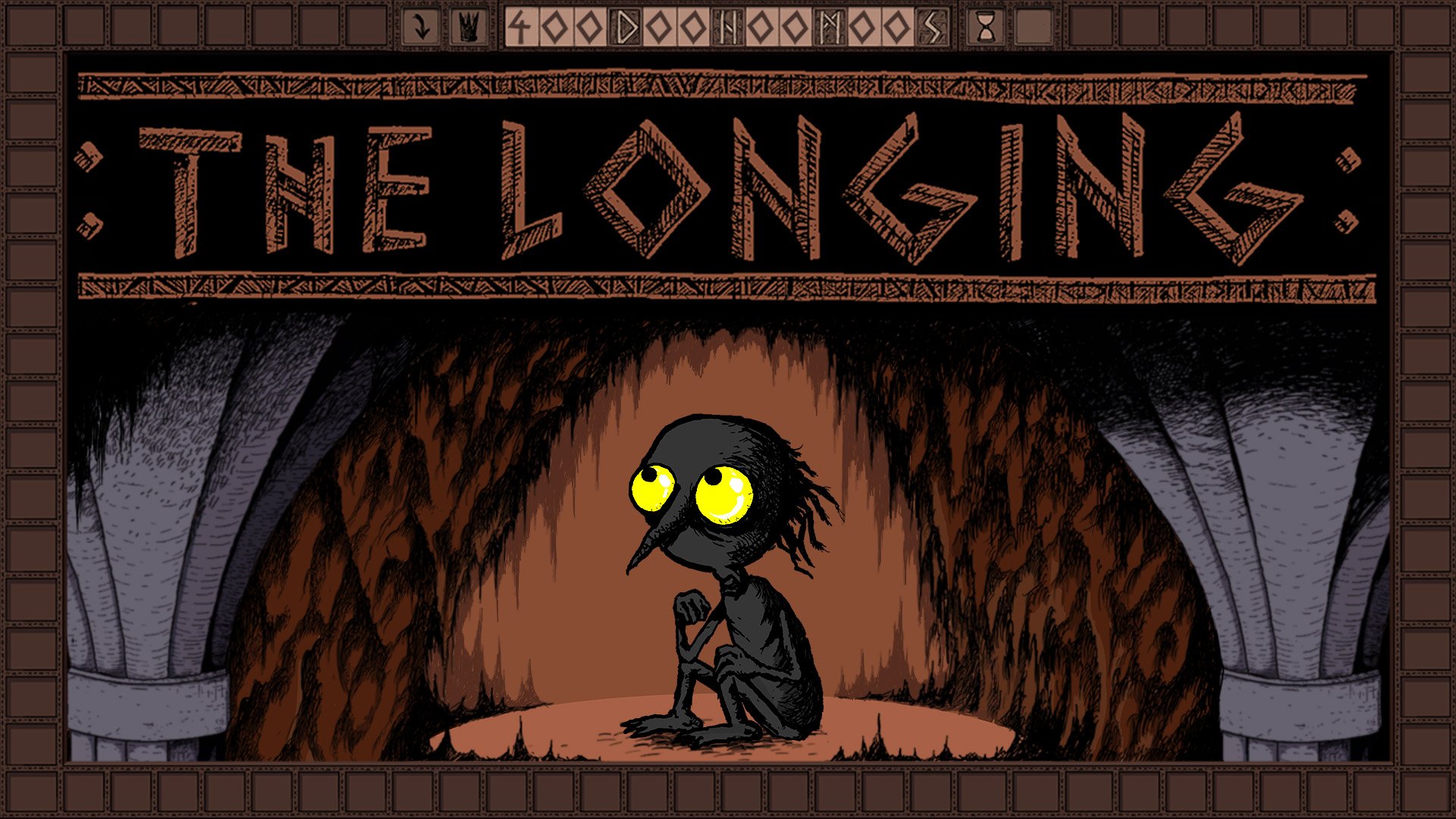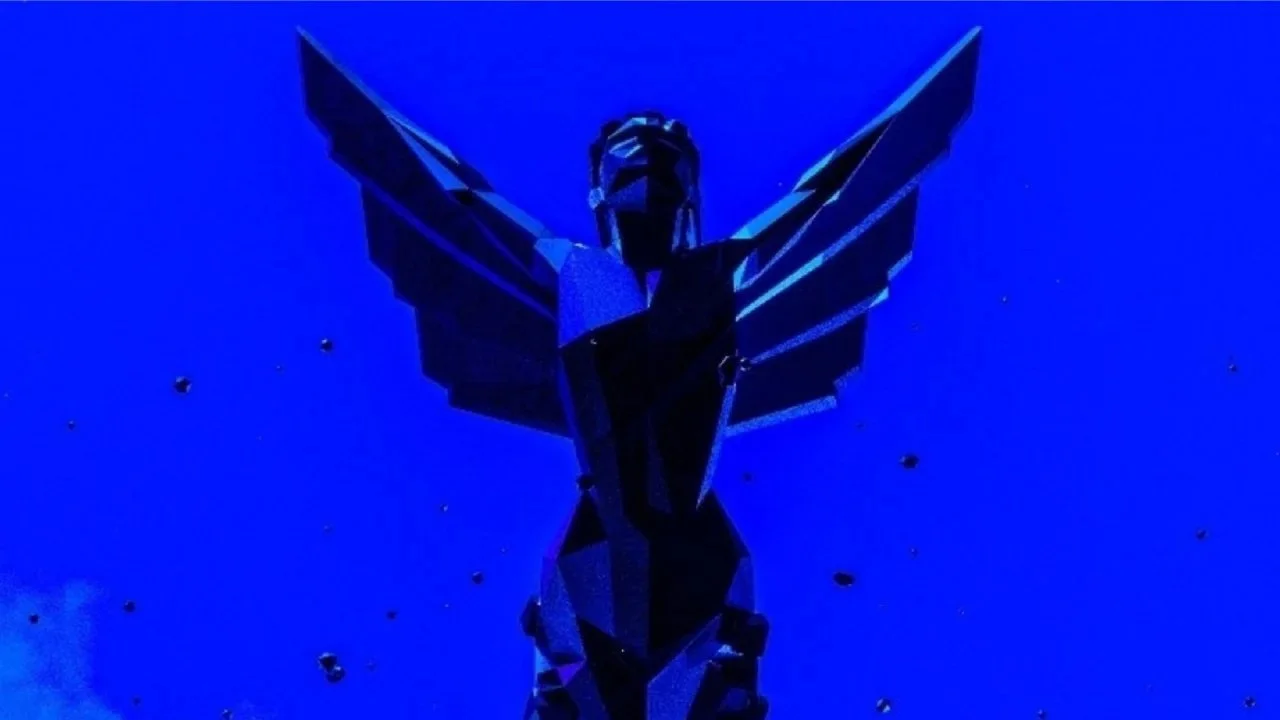Michael Leopold Weber's Top 5 Tips For Reaching Out To Game Devs | Winter Spectacular 2021
Reaching out to people can be scary. Whether in person (though there is still a pandemic rumbling on who’s even seeing other people in the flesh) or over the hellscape that is the modern internet, trying to network with people can be a crushing, anxiety-inducing process. I started out in this business around two years ago and, much like you, had no idea who to talk to or how to talk to them. The fact you are even on startmenu is a good start. Whether through this article or the many other pieces from fantastic writers both veteran and green, having articles and a community to fall back on and ask for help or even just being there for emotional support when pushing outside of your boundaries is the first and most important step in breaking into any part of the video game industry.
Editor’s note: I hadn’t looked at these preview images in a while but DDDDDAMN, I am glad I back at the [versus] tier now.
Now, throughout my small tenure in the business, I have gone from the lowly depths of budding freelancer to the lofty heights of a budding freelancer. But I have also been given the great honour of being indie print publication Lost In Cult’s [versus] Content Director and Developer Relations Director. Which is both a mouthful and pretty cool! For those who don’t know, [versus] is a 2-player promotional competitive card game exclusive to Kickstarter backers of Lost In Cult’s [lock-on] gaming anthology. Each card features a different indie game character or location who battle it out to dominate the playing field. As I said, pretty cool!
For this role and my freelance stuff, I have to regularly speak with game devs, PR people, community managers and more about interviews, the use of their IPs for [versus] and other business-related MacGubbins that might occur. Over the last year, I have spoken with AAA development teams, PR representatives for the hottest new indies as well as solo developers on funky fresh projects and honed some skills that might be of interest. In the spirit of end of year listicles, I have compartmentalised this advice into “5 tips for reaching out to game devs”.
You know people that leave sticky notes around the place reminding them to drink water? Yeah, I do that but with reminders to play A Short Hike again.
Before we crack on, it must be said that these are not hard and fast rules. Like with everything on this green Earth, every situation is different. Hopefully, though, there will be something here that can help you break through that barrier of reaching out to people you don’t really know - even if that something happens to be reading this, thinking I speak utter nonsense and doing the exact opposite to me.
1. Know Who You Need To Reach Out To
Before you can even begin pitching your interview ideas to a developer, you need to know exactly who you need to reach out to. Of course, starting with the name of the person you would ideally like to talk to would be brilliant, but equally, be open to suggestions as to who might be better suited to take your questions. It’s all well and good wanting to interview the head of the studio, but if your article is mostly about the games sound design or art, someone within those fields will provide better answers to those nitty-gritty questions.
AND AFTER ALL THAT, IT TURNED OUT THE GREAT MIGHTY POO DOESN’T WORK THERE ANYMORE!
This goes beyond personnel, however. In many cases, game studios will have a middle person that oversees the media coverage that game or company takes part in. This is especially important if you want to speak with a AAA company or a studio within the orbit of a large publisher. Take, for example, Rare LTD. For my article with Gamesindustry.biz about how TikTok is shaping the games we play. I had to first reach out to Xbox PR, who then reached out to Rare on my behalf, who then replied to Xbox PR as to whether they were interested in the interview, who I then had to give interview questions to, who then passed those interview questions onto the respective Rare representatives who then gave the answers back to Xbox PR before getting them back to me and, yes, it took as much time as you think that level of bureaucracy would take. However, going through these proper channels did mean that said Xbox PR person also got me in touch with the Xbox Social Media Marketing Manager, someone I didn’t think to speak to on the matter which made my piece better overall.
This experience isn’t exclusive to AAA companies. Many indies will also go through PR people for their media coverage. In many cases, reaching out to a dev directly will result in them pointing you to their PR people who can actually organise something for you instead of wasting both yours and their time.
Do your research, find out who the people at the company you want to reach out to are represented by and start following the trail.
2. Find The Backdoor
Now to immediately contradict my first point (as I quietly rock back and forth chanting “every situation is different”), sometimes following the pre-designated trails can lead you to a generic email address, typically starting with info@, which, in turn, will often lead to a dead end. That’s not to say that every info@ email is just a pit of hopeless interview request emails, but this is when you might need to start doing some internet sleuthing.
I hope this claymore finds you well.
Diving through a studio’s official website, Twitter or even LinkedIn can lead you to more direct points of contact. An email address starting with a name is a sign you have struck gold. Even if that person is not related to the subject matter you would like to speak about, as long as you’re respectful and kind in your email (more on that later) they will, more often than not, either point you in the right direction or CC the person you need to talk to. Then you have yourself a direct line of communication and a starting point for whatever business you would like to partake in with a studio/developer/etc.
A bit of time and research into finding not only who to talk to but the best way of contacting them can pay dividends in getting the right sources for your piece, even if that means taking an hour or so out of your day to hunt down the perfect email.
3. Be Patient
Patience is a virtue, or so I am told. I don’t really know what that means, but it is useful to be it. There are a whole host of reasons as to why the studio you have reached out to haven’t yet gotten back to you. Maybe they’re about to launch and have more pressing things on their mind than minor press coverage? Maybe there is a big update on the horizon that is meaning the person you would ideally like to interview is currently preoccupied? Maybe the studio is on holiday because these people are insanely busy and deserve time off? Either way, it’s very rare for a studio to get back to you immediately. So, be patient. Take your time.
Right, so, I have the perfect game recommendation for you to help burn away the hours while you wait.
This can be a good time to evaluate the piece you’re writing and see if there are any other devs or people with different perspectives you can reach out to in the meantime. Rather than letting the piece sit and stew whilst you wait for a possible response, start asking other studios that might have your answers just in case your first choice team cannot answer you for any reason, or research the people that play the games you are writing about. In an ideal world, what will happen is that everyone will respond and talk to you and suddenly you have more sources to pull from and a better piece because of it.
4. … But Not Too Patient
When I was talking about devs and PR people, I gave a whole host of reasons as to why they haven’t gotten back to you as of yet. One reason I didn’t include is the incredibly human: “haven’t bothered yet”. We’ve all been there. A friend messages you about something, you see it and think “gee I need to reply to that” and then BAM it’s been six months and that dinner offer has probably expired. The same thing happens to PR and devs because they’re busy humans who might overlook things.
Remember when The Division first launched and players could only interact with quest-givers one at a time?
…
Oh, the good old days!
My general rule of thumb is to follow up around once a week. Always on the same email thread as to not confuse/clutter the recipients and clutter their inbox further and just a sentence or two to just remind them that you’re alive and looking for a response. Normally this will nudge that person who will be thankful for the reminder and crack on with what you need. However, if you never hear back, it’s worth then looking at finding a different email or reaching out to the official Twitter page for nudging, as occasionally your unsolicited email, however innocent, could fall foul to the spam folder of a person’s email account.
I would be extremely cautious in nudging someone’s personal social media account unless you have a pre-existing relationship with the person. In most cases, that account is for their shitposts and don’t need you coming in reminding them of work or whatever.
Overall advice: just keep nudging and be polite. I have had cases where devs have gotten back to me months after my initial email to say they’re interested in chatting. This can, sometimes, bring an article back from the dead or give you inspiration for a new piece now you have their attention.
5. These People Are Not Your Friends
The last thing that’s worth remembering is that when you are reaching out to developers or PR representatives about possible interviews or work opportunities is to be respectful. That goes well beyond saying “please” and “thank you”, but also in how to speak to said developer or PR person. At the end of the day, you are strangers to each other. It doesn’t matter if you have followed this person’s career since you were 12, follow them on all social media platforms and know the name of their sister’s daughters cat - they are still a stranger to you and you must treat them as such.
Me, PR and developers just hanging out…
Interpret emailing them as you would a professor at university or a potential boss for a job. Keep your language formal and devoid of personal comments that, however well-meaning, might make that person feel uncomfortable. That’s not to say you have to be a corporate stooge. There is room to show off your personality in how you write in a formal manner. Colloquialisms, as long as it's not crude, too niche or too regional are great and reminds folks that you are in fact a human! Just maybe don’t tell a background designer that they have tekkers for example. A relaxed formal language and personability are excellent and actively encouraged. Just do not push that to the language you use among your friends. Because they’re not your friend. They might be in the future because the world is a wild and beautiful place where people from all walks of life can form bonds, but right now they’re a stranger on the internet who makes a thing you think is cool and worth interviewing about.













